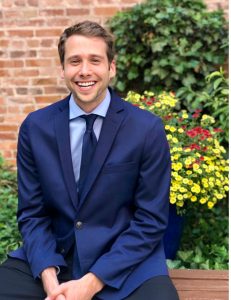 Josh Handelsman joined Kanji & Katzen as an associate attorney in 2022. Josh may be contacted at jhandelsman@kanjikatzen.com.**
Josh Handelsman joined Kanji & Katzen as an associate attorney in 2022. Josh may be contacted at jhandelsman@kanjikatzen.com.**
Education: Josh earned his B.A. in Political Science from Dickinson College in 2012, graduating summa cum laude and Phi Beta Kappa. In 2017, Josh received his J.D. from Yale Law School, where he served on the Yale International Law Journal and taught constitutional law at a local high school as part of the Marshall-Brennan Constitutional Literacy Project.
Prior Experience: Before joining Kanji & Katzen, Josh worked at a nationally renowned plaintiffs-side law firm, where he represented investors and state agencies that had been victimized by corporate fraud. His work included leading pre-litigation investigations, writing briefs, and helping carry multiple cases through discovery. He also spent a year at a large defense-side firm and clerked for Judge Harris L Hartz of the United States Court of Appeals for the Tenth Circuit.
Before law school, Josh taught high school social studies at Tse’ Yi’ Gai High School in Pueblo Pintado, New Mexico, in the eastern part of the Navajo Nation.
Personal Interests: Outside of work, Josh enjoys reading history books and novels, going on long walks while listening to podcasts, and talking with friends about sports, politics, and movies.
Bar Memberships:
- District of Columbia Bar
- United States District Court for the District of Columbia
- United States Court of Appeals for the Tenth Circuit
**When sending an e-mail before an attorney-client relationship has been established, please do not include any confidential, secret or otherwise sensitive information. Unsolicited e-mails do not create an attorney-client relationship, and confidential or secret information included in such e-mails cannot be protected from disclosure.